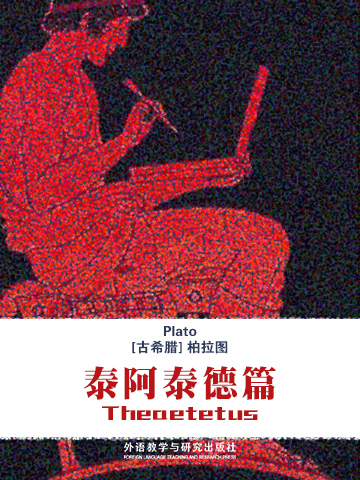苏格拉底、塞奥多洛和泰阿泰德之间探究“知识”本性的哲学谈话
Their dialogue covers many questions, such as: is knowledge purely subjective, composed of the ever-changing flow of impressions we receive from the outside world? Is it better thought of as true belief'? With skill and eloquence, Socrates guides the debate, drawing out the implications of these theories and subjecting them to merciless and mesmerising criticism. One of the founding works of epistemology, this profound discussion of the problem of knowledge continues to intrigue and inspire.
《泰阿泰德篇》古希腊哲学家柏拉图关于认识论问题的一篇重要对话。
The Theaetetus is one of Plato's dialogues concerning the nature of knowledge, written circa 369 BC. In this dialogue, Socrates and Theaetetus discuss three definitions of knowledge: knowledge as nothing but perception, knowledge as true judgement, and, finally, knowledge as a true judgement with an account. Each of these definitions is shown to be unsatisfactory.
- THEAETETUS
- 书评 写书评
- 笔记
-
书评加载中...













 京公网安备 11010802032529号
京公网安备 11010802032529号
笔记加载中...